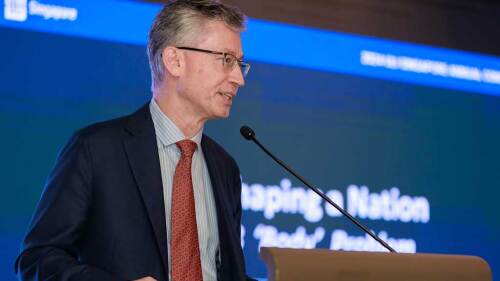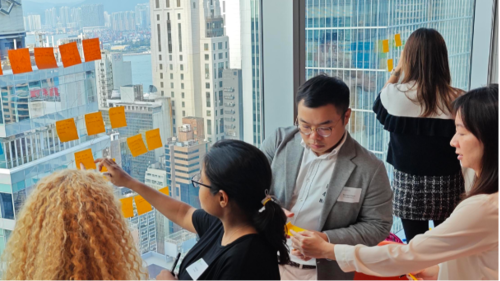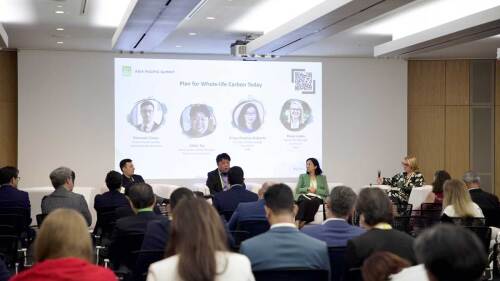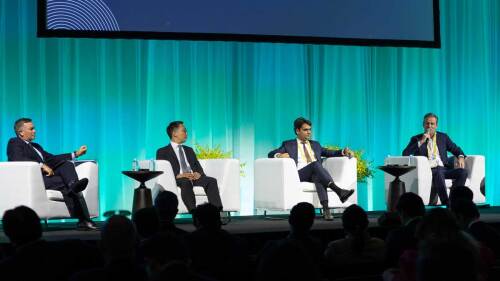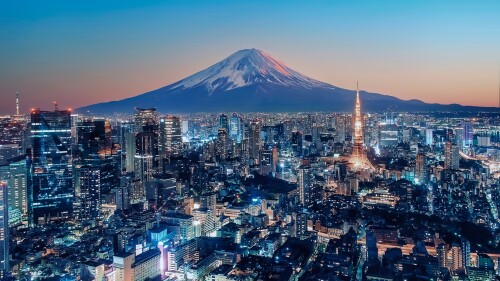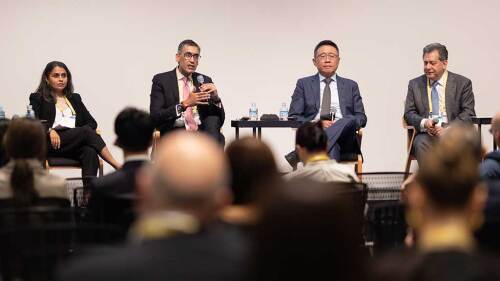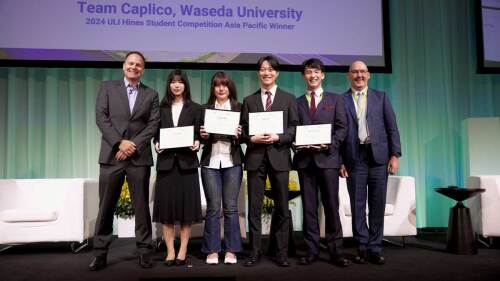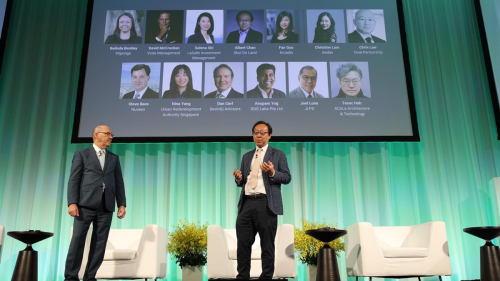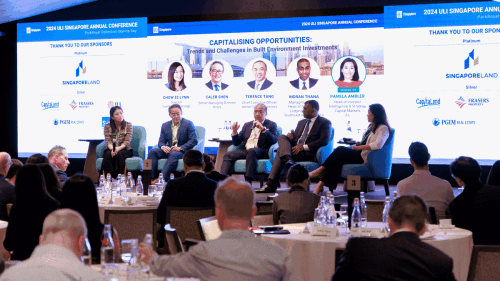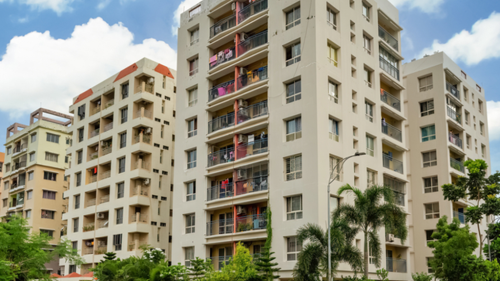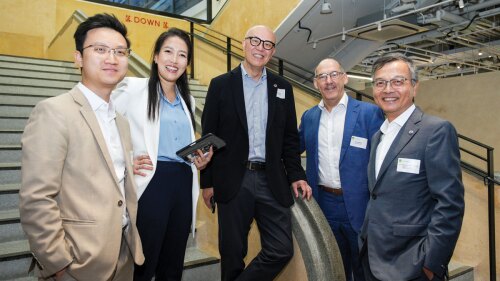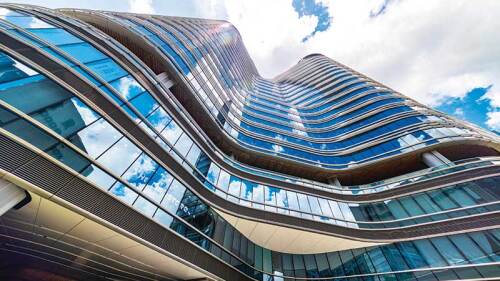Asia Pacific
Insights, trends, and innovation shaping real estate and urban development across the Asia Pacific region’s dynamic markets and cities.
A new initiative aimed at promoting low-carbon steel in China’s real estate sector has been launched, co-convened by ULI Greenprint, the World Steel Association, and the China Iron and Steel Association. This collaboration unites major real estate developers and steel manufacturers to drive the transition to low-carbon steel production, with the goal of significantly reducing emissions in Mainland China and Hong Kong. China’s steel industry plays a pivotal role in global efforts to combat climate change.
During his keynote address at the 2024 ULI Singapore Annual Conference, more than 300 participants gathered at the Parkroyal Collection Marina Bay to hear Olivier Lim, chairman of StarHub and the Singapore Tourism Board—based upon his 35 years of experience in real estate, banking, and leadership—how land and real estate shaped Singapore’s path as a nation.
Against the iconic backdrop of Hong Kong’s skyline, a room filled with cross-disciplinary real estate experts engaged in a lively display of unprecedented collaboration. Brightly colored sticky notes plastered across the floor-to-ceiling windows mapped out an intricate web of relationships between developers, tech providers, facility managers, investors, utilities, and more. The pioneering systems change workshop was piloted by ULI APAC Greenprint and aimed to address a critical challenge: how to accelerate climate tech implementations that will lead to long-term sustainability.
Renowned U.S. architect opens up about his extraordinary career in China and the U.S.
As owners and investors face mounting pressure to make new projects compliant with modern environmental standards, the concept of “whole-life” carbon has become a focus of increased interest. The model approximates the total emissions of a structure, both during construction and over its lifespan. A panel at the 2024 Asia Pacific Summit in Tokyo took a hard look at the implications of this approach.
The final day of the 2024 ULI Asia Pacific summit in Tokyo featured a capital markets panel with leaders from both European and North American funds, who shared their insights into the region’s real estate markets—and how those markets stack up against their global counterparts.
Since global central banks began hiking interest rates in 2022, Japan’s lower cost of capital has made it a magnet for global investors seeking deals in one of the very few major markets still offering positive yield spreads.
For many years, India’s real estate markets languished in the shadow of booming Mainland China, with investors flocking there to buy real estate and tap into emerging demand. More recently, as China has struggled to mediate structural oversupply in real assets, investment flows are moving increasingly in a southerly direction. A panel at the ULI’s 2024 Asia Pacific Summit in Tokyo addressed the dynamics of current investment landscapes in each market.
The winners of the second ULI Hines Student Competition for the Asia Pacific region faced a dual challenge: create a compelling urban development proposal and follow in the footsteps of classmates who won the inaugural contest.
Twelve developments from across Asia have been selected as winners of the 2024 ULI Asia Pacific Awards for Excellence, one of the real estate industry’s most prestigious honors. Announced at the 2024 ULI Asia Pacific Summit held in May in Tokyo, this year’s award winners include projects in Australia, China, Hong Kong, Japan, Singapore, and the Philippines. These winners will automatically qualify as nominees for the 2024 ULI Global Awards for Excellence, where they will compete against projects from North America and Europe.
Singapore
Although market dynamics are changing in countries across Asia, new opportunities are opening up in real estate investment
Conducted in October, the Emerging Trends in Real Estate® survey ranked Tokyo (1), Osaka (2), Sydney (3), and Singapore (4) as the four cities with the best investment prospects for the region. However, MSCI data and anecdotal reports reveal that market disparities are profoundly evident across both geographies and sectors in Asia Pacific.
With investors across the Asia Pacific continuing to avoid mainstream asset classes as they seek out higher returns and more reliable income streams, attention has turned increasingly to “living assets”—a broadly defined concept that includes the multifamily, senior living, and student housing sectors.
Hong Kong
ULI Asia Pacific report builds the business case.
With the Asia Pacific region comprising 4.3 billion people and many of the world’s biggest cities, the sheer scale of the sustainability challenge there is daunting. However, asset owners are increasingly using more sustainable designs and technologies to boost the performance of their assets.
As the real estate industry focuses increasingly on the mantra of carbon efficiency, owners and occupiers are scrambling to find ways to reduce carbon footprints. A recent ULI conference in Hong Kong brought together experts across a range of disciplines to discuss the migration to net zero for both new and retrofitted buildings.


